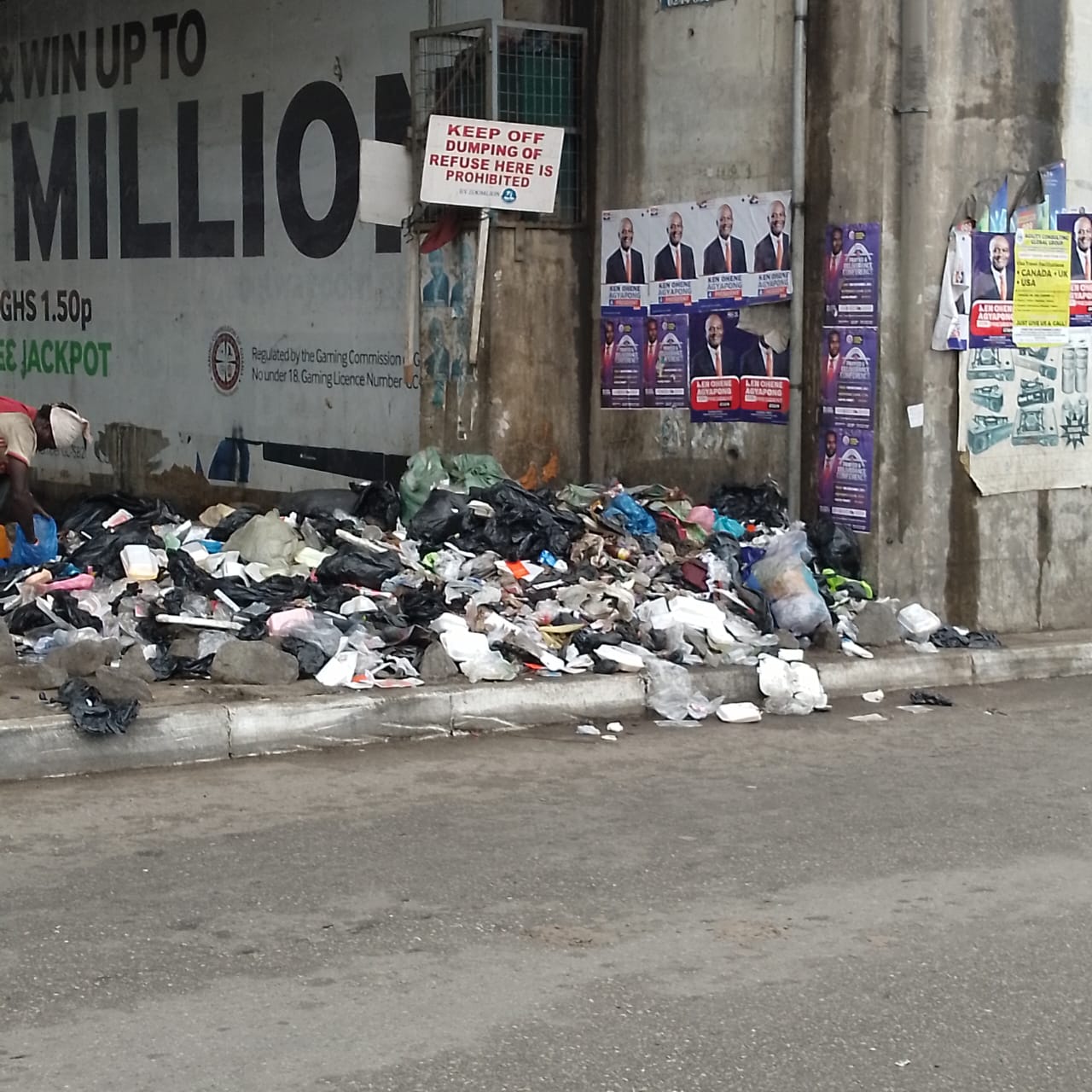Sanitation has become a challenge in our part of the world. Over the years, effort has been made by different governments to usher the country into a proper phase of sanitation.
In April 2017, President Nana Addo Dankwa Akufo-Addo pledged to make Accra the neatest and best city in
Africa.
“The commitment we are making and which I want you all to make with me is that by the time we end our four-year term, Accra is going to be the cleanest city in Africa,” he stated.
But the extent to which Accra and most especially the median strip of major roads have been neglected and become bushy and dirty is alarming.
The sideways of Accra city roads are some of the bushiest. These are unsightly, and coupled with the mini-advertizing billboards in median strips, they obstruct the view of motorists who negotiate U-turns.

The median strip along the Tesano-Achimota road, the Danquah roundabout in Osu, and the open spaces along the Shiashie-Okponglo road, to mention but a few are nothing good to write home about, especially in a city that aims to be the cleanest in Africa.
That the physical environment has an impact on human health and comfort is indubitable.
Human beings depend on the environment for survival and the environment reacts based on how human beings treat it. 
Man is an active factor in change within the environment. As such, our surroundings must not be left to be bushy.
Elsewhere, beautiful flowers are planted in the portions of the road where we have weeds growing. If we cannot plant and prune flowers, then we should put concrete in those places.
It has been established beyond doubt that bushy surroundings tend to attract and serve as habitats for reptiles, rodents, and other poisonous creatures that can be harmful to human health.
It is in this regard that we must brighten the corner where we are so that we will not be harmed unnecessarily
within the environment.
In the same vein, the littering and dumping of refuse at unapproved places adds to the sanitation crises the city is facing.
Unfortunately, the existence of garbage bins does not guarantee that waste will not be dropped on the streets.
Evident in such a case, is the situation right beneath the Kwame Nkrumah Circle overpass, where it is vividly written ” Keep Off, dumping refuse here is prohibited” but right beneath the sign are heaps of rubbish deliberately dumped there, and even in broad daylight people dump refuse there as if its a dumpsite.

Enforcing strict litter laws will encourage people not to litter in private and public places. Such laws work towards prohibiting illegal dumping and littering.
According to research conducted by the 2011 Keep Britain Tidy campaign, attitudes concerning law enforcement are greatly shaped by the degree to which an individual sees it as a threat and many do not think it is likely they will be fined for environmental offences.
The same research also reports that people who have seen or heard about fixed penalty notices being issued are less likely to litter.
Littering penalties and other enforcement measures are common practices worldwide.
Undoubtedly, penalties have a real effect on littering behaviour, but education and awareness creation is crucial in guaranteeing long-term results.
Community clean-up events can be an effective way to spread anti-litter messages in society. The issue could also be incorporated into bulletin boards, TV programs, social media platforms, and newsletters more intensively to spread the message widely.
In recent developments a group of young men who have been identified as Buzstop boys have taken up the initiative of cleaning parts of Accra’s bus stops.
In an interview with Nana Ama Mcbrown, they disclosed that one of the challenges they encounter is the fact that most times the places they have already cleaned become very dirty again within 24 hours due to the indiscipline of some citizens.
The question now is, how long can this continue? what can be done to salvage the situation? Or the Ghanaian is just a naturally bush-loving and dirty person?
In light of all the ongoing sanitation campaigns, it is important that the government and citizens collectively put in efforts to adhere to simple sanitation rules.
Whilst the government intensifies anti-littering campaigns, admonishing institutions in charge of clearing and pruning the plants in the median strips of roads, citizens should also adhere to environmental instructions, signs, and cautions.
Some people argue that not only penalties but rewards also might be a good idea. People “caught” doing the right thing may be given rewards and their positive behaviour publicized in the media or social networks to encourage others to dispose of rubbish properly.



